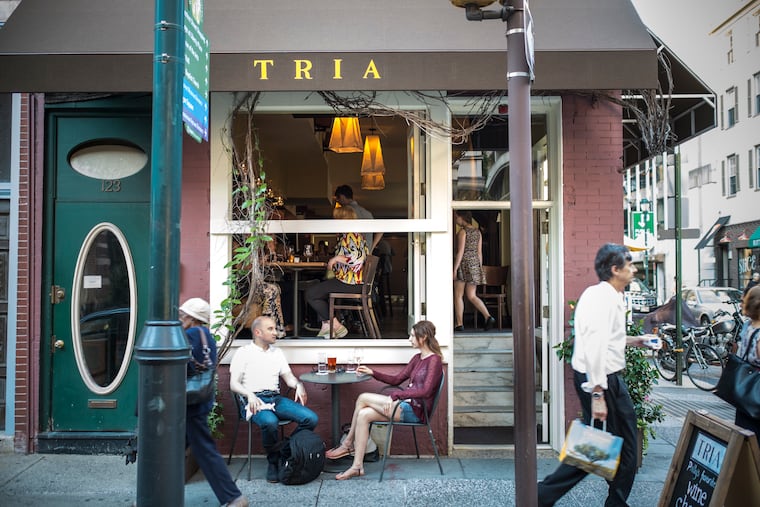Tria founder: Without help, my restaurant and others will not survive the pandemic | Opinion
Independent restaurants, from quirky dive bars to luxe steakhouses, help define our communities, bring in tax dollars, and employ thousands of Philadelphians.

I own three Center City restaurants and have been a Philadelphia restaurateur since 1992. Two are currently open, buoyed by outdoor dining, while the other, lacking sidewalk and street frontage, is at least temporarily closed. The future of my business is uncertain. I want to remain hopeful that Philly’s restaurant industry can survive, but it’s getting harder.
On most days, I come across a fresh article on the existential crisis faced by independent restaurants like mine. The headlines appear sensationalist and hyperbolic, but they ring true. I read each article and think to myself: “It’s not my imagination. This really is as awful as it feels.” In recent weeks, the outlook of my fellow Philly restaurateurs, normally an incorrigibly optimistic bunch, has progressed from frustration to panic.
We can argue until the cows come home whether it is a good idea to impose stringent restrictions on indoor dining. Restaurateurs are not at all united on this front. Health Commissioner Thomas Farley is an honorable, competent professional whose only crime is trying to save our fellow citizens’ lives. We should agree that safety is the highest priority. We can agree to disagree with the commissioner’s specific tactics toward that end.
» READ MORE: Philly’s restaurant industry workers are worried: ‘I have maybe three months where I’ll be OK financially.’
What is inarguable, however, is that the independent restaurant industry needs immediate help to survive. This is about so much more than the owners and their families. Independent restaurants employ 11 million people nationally, and 90% of the $653 billion in annual revenues gets paid to our employees, suppliers, and landlords. Independent restaurants generate massive tax revenues. Not least of all, independent restaurants, from quirky dive bars to luxe steakhouses, help define our communities.
Even a diehard libertarian would likely agree that if the federal government has one role, it is to protect its citizenry. Our current U.S. administration failed miserably in that role, and restaurants have become collateral damage. But there is hope. Forty-eight U.S. senators, including 11 Republicans, have cosponsored the RESTAURANTS Act that would provide $120 billion in grants to the nation’s 500,000 independent restaurants. This game-changing and elegantly simple legislation handily passed in the House as part of a $2.2 billion relief package. The Senate is a different story; Majority Leader Mitch McConnell appears uninterested in providing meaningful relief. (Here in Pennsylvania, Sen. Bob Casey is a cosponsor of the bill, while Sen. Pat Toomey, ironically a former restaurant owner, is against the HEROES Act, which contains the RESTAURANTS Act.)
» READ MORE: With no relief in sight, Philadelphia restaurateurs feel like ‘it’s slipping away’ | Craig LaBan
Time is running out. Cold weather is upon us, and my industry has been warning for months that winter, depriving us of outdoor dining, will be the final straw. “The house is on fire” is an oft-used metaphor for the COVID-19 crisis. It also applies to the restaurant industry’s current condition. In the glaring absence of federal aid, our state and local political leadership need to treat our plight like the four-alarm emergency it is.
It is projected that up to 80% of independent restaurants will close by the end of next year without further government aid. Philadelphia’s restaurants are especially vulnerable given seasonal outdoor dining and stringent indoor dining regulations that are not in place in surrounding counties. Imagine the third quarter of 2021, when vaccines become widely distributed and our lives start returning to normal. Except that so many of our favorite establishments, whether for just hanging out or celebrating life’s milestones, will be gone forever. Too many already are. Our elected officials must help extinguish this fire before an essential industry burns to the ground.
Jonathan Myerow is the founder of Tria Rittenhouse.